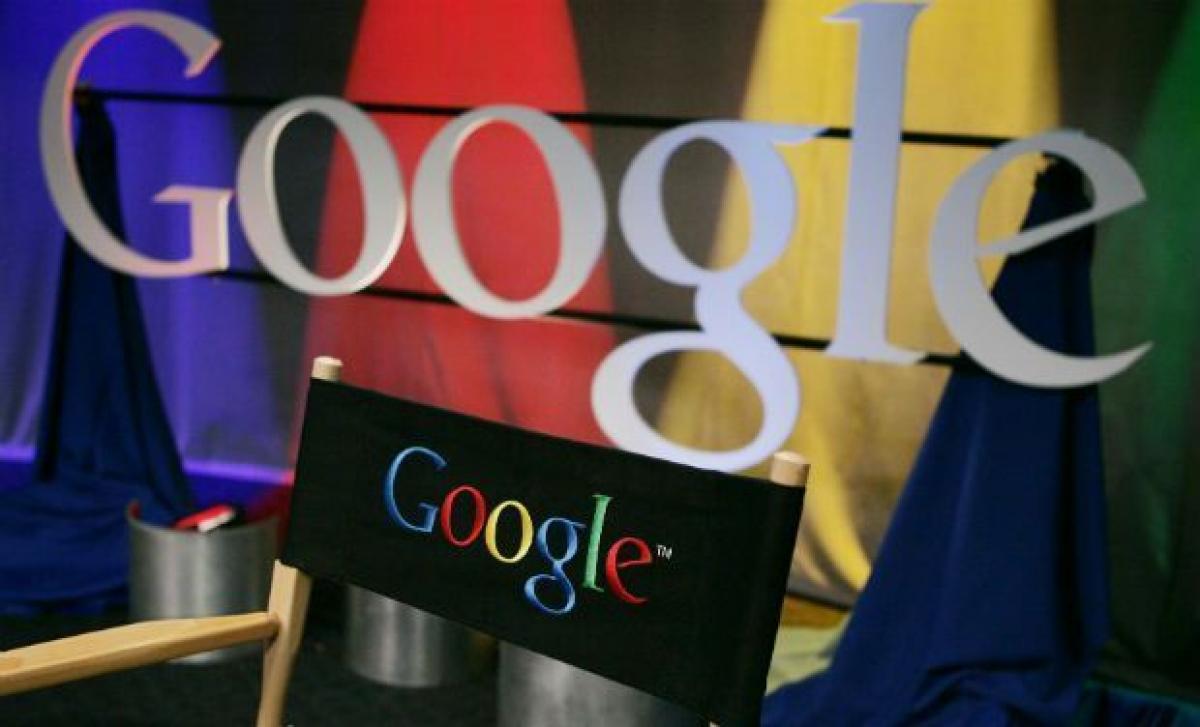Live
- Over 7,600 Syrians return from Turkiye in five days after Assad's downfall: minister
- Delhi BJP leaders stay overnight in 1,194 slum clusters
- Keerthy Suresh and Anthony Thattil Tie the Knot in a Christian Ceremony
- AAP, BJP making false promises to slum dwellers for votes: Delhi Congress
- 'Vere Level Office' Review: A Refreshing Take on Corporate Life with Humor and Heart
- Libya's oil company declares force majeure at key refinery following clashes
- Illegal Rohingyas: BJP seeks Assembly session to implement NRC in Delhi
- Philippines orders full evacuation amid possible volcanic re-eruption
- Government Prioritizes Welfare of the Poor, says Dola Sri Bala Veeranjaneyaswamy
- Two Russian oil tankers with 29 on board damaged due to bad weather
Just In

x
Highlights
In a nod to its humble beginning in the garage of a Silicon Valley house, Google is building \"campuses\" around the world intended as fertile ground where entrepreneurs can flourish. A campus that opened last month in Madrid was the fourth such start-up nurturing facility opened by a Google for Entrepreneurs team at the California-based Internet titan.
In a nod to its humble beginning in the garage of a Silicon Valley house, Google is building "campuses" around the world intended as fertile ground where entrepreneurs can flourish. A campus that opened last month in Madrid was the fourth such start-up nurturing facility opened by a Google for Entrepreneurs team at the California-based Internet titan.
.jpg)
The first campus opened in London in 2012, followed by one in Tel Aviv and then a third in Seoul."We began as a startup in a garage 17 years ago and really believe in empowering the next generation of startups," said Google for Entrepreneurs director Mary Grove. "The goal is to foster entrepreneurship all over the world." Google plans to open startup campuses in Warsaw and Sao Paulo later this year.
Campuses provide spaces for startups to meet, work, and learn. Partners are brought in to provide cafe services for which Silicon Valley tech companies are renowned. Each campus has large event spaces that groups can apply to use free of charge. The London campus averages four big events daily. Co-working desk spaces can be rented, with certain operations contracted out to partners such as TechHub, which provides work space for tech entrepreneurs, and Seedcamp investment fund.
The campuses have about 20,000 square feet of space and 200 desks.Membership is free, and some 55,000 people around the world have signed on, according to Grove. She said the process of users going from being a new arrival to learning from mentors, meeting potential investors, and gaining traction is referred to as "working their way through the building." "It's a hive of activity and has a tremendous energy about it," said Frugl founder Suzanne Noble.
"I've lost count of the interesting workshops and talks that I've attended there and have really helped to grow my business." Her company is behind an app that helps people on budgets find affordable things to do and she is taking part in a freshly-launched London Campus program devoted to tech company founders over the age of 50.
In contrast to typical startup accelerator programs, being at campus is more about sharing skills and maximizing use of resources made available, according to Noble. Wiki-kids co-founder Inbal Miron-Bershteyn attended a baby-friendly startup program for entrepreneurial mothers at the Tel Aviv Campus.
There are mattresses on the floor for nap time and children are free to crawl around while their mothers talk to mentors, experts and women who have started companies of their own, according to Miron-Bershteyn. Diaper changing and breast feeding are accepted parts of the routine. "Even sometimes a crying baby will be held by a mentor," Miron-Bershteyn said while describing her Campus for Moms experience. "It is a great community, everybody comes together. It works, I think, on good karma. Mentors come for nothing and the women get encouraged and empowered." Wiki-kids is a talking encyclopedia tailored for children, launched just a couple of months before Miron-Bershteyn took part in Campus for Moms last year.
Google does not earn any revenue from its campuses, and did not disclose how much it spends on the facilities or the programs. "It is such a part of Google's DNA," Grove said of promoting tech entrepreneurs. "We have the tools to make startups successful, we know that more companies online using the Internet and Google products is good for Google in the long run." Startups out of the London campus have created about 1,800 jobs in the past three years and raised $110 million in funding, according to Grove.
Along with startups flourishing on campuses, she hoped that the facilities themselves would be seeds for the growth of tech company clusters in neighborhoods where they are located. "It is not about recreating Silicon Valley, it is about finding what is unique about cities and capitalizing on it," Grove said.

Next Story
More Stories
ADVERTISEMENT
© 2024 Hyderabad Media House Limited/The Hans India. All rights reserved. Powered by hocalwire.com







